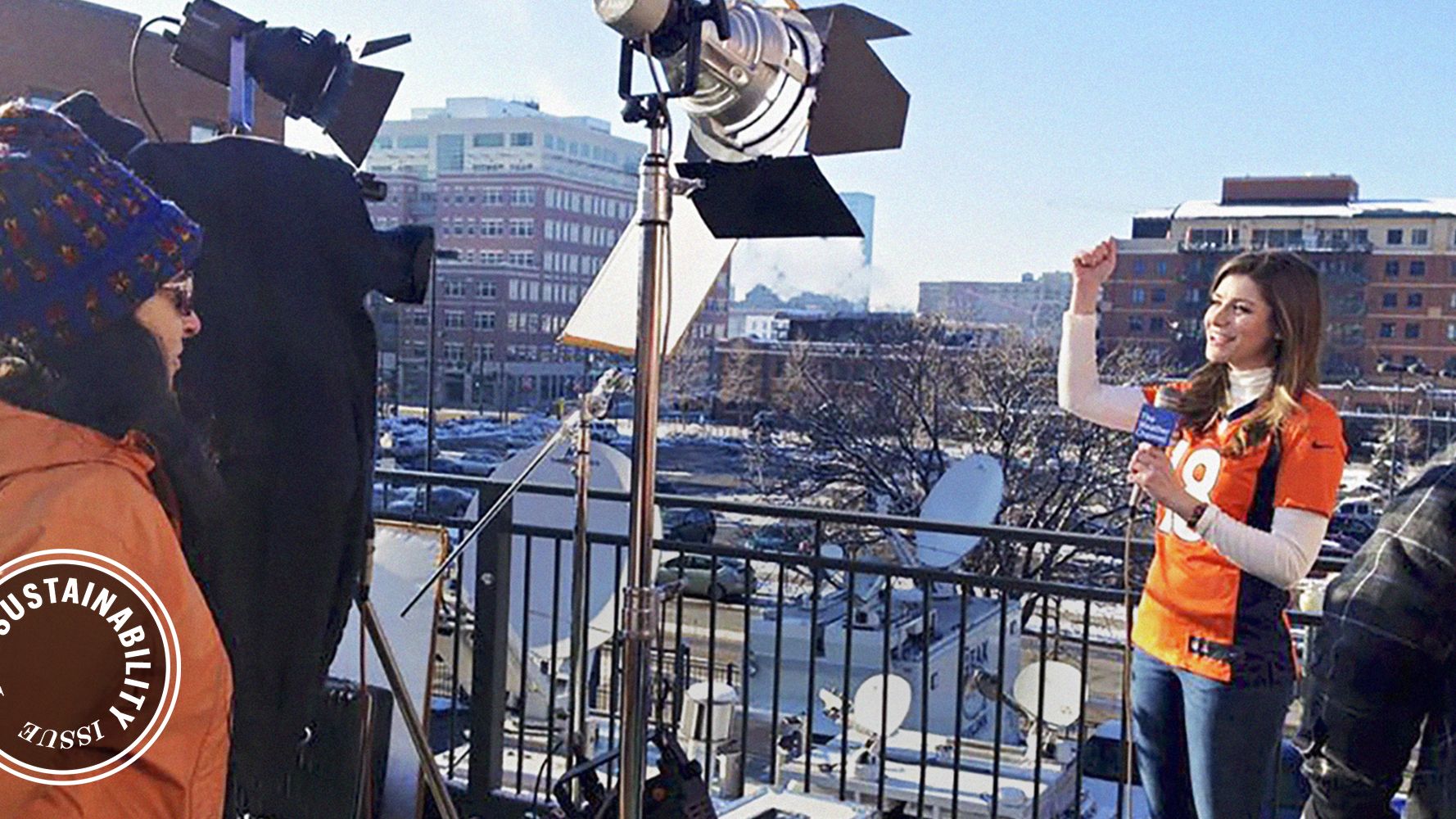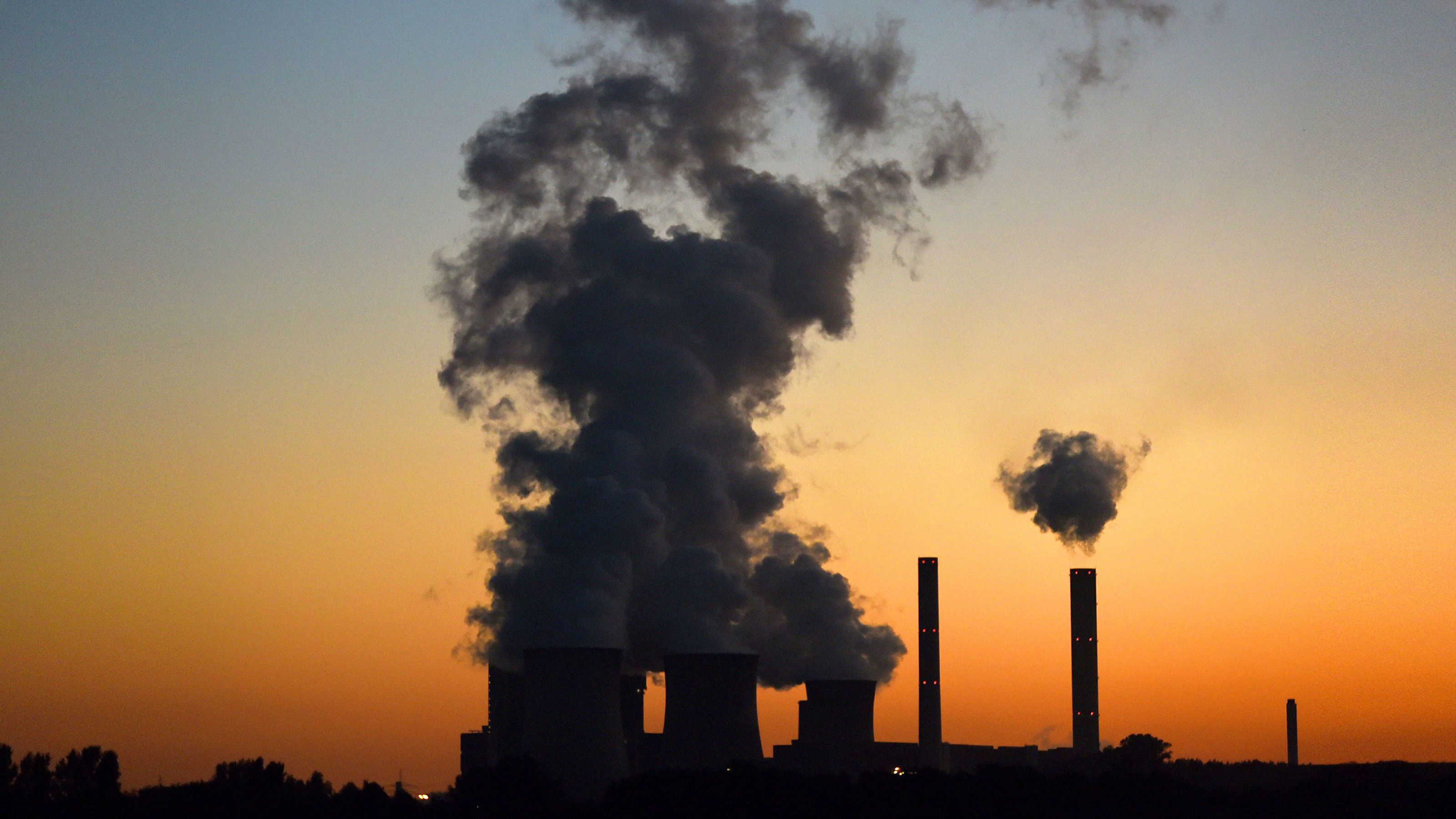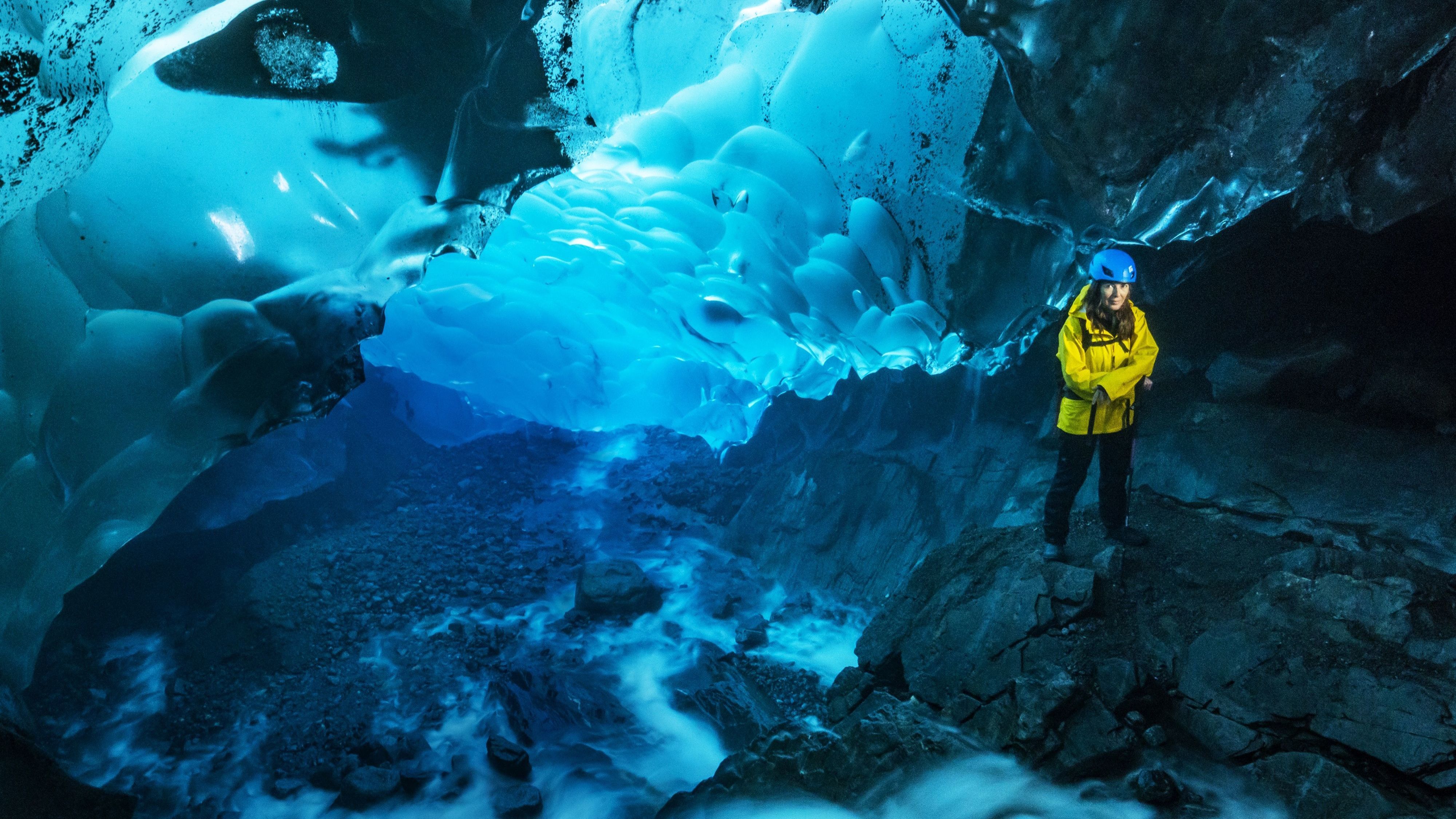Meet Meteorologist Kait Parker: The Woman Debunking Fake News Surrounding Climate Change
Yes, climate change is *real.* And Parker is fighting back on behalf of science.

As a meteorologist for The Weather Channel's weather.com, Kait Parker spent a lot of the 2016 presidential campaign frustrated that climate change was largely ignored. (It was also called a "hoax" by then-candidate Donald Trump.) Then, in late November, right-wing news website breitbart.com published an article alleging that the Earth is cooling, not warming, and used a portion of a video Pacific Ocean temperatures are cooler than average to bolster its claims. Parker, 30, produced a withering video in response, debunking Breitbart's story point by point. The "alternative facts" kept coming, so Parker turned the video into a series called "Science Is Real," wherein she corrects false claims about a variety of science topics. Here, the Atlanta-based reporter discusses her foray into politics, who inspires her work, and weather.com's ongoing "United States of Climate Change" series, which is documenting the impacts of climate change in all 50 states.
Marie Claire: Why did you decide to become a meteorologist?
Kait Parker: I was born and raised in Texas by a math teacher and a firefighter who was also a storm spotter for the National Weather Service. So I grew up with a love for, and fascination with, the weather, and also with a love of math and science. My father is on a rescue-and-response team, so he's always responded to every natural disaster. He was always going up and picking up the pieces [in the aftermath of natural disasters], and I thought, Well, what can I do on the front end to save these lives in the first place?
A post shared by Kait Parker (@weatherkait)
A photo posted by on
MC: When did your work take a political turn?
KP: I did climate-change-related videos on a regular basis, whenever there was breaking news—the warmest month on record, as the glaciers melted even more, as the sea ice reached a new record low. It became apparent that doing these videos that just stated the facts wasn't going to cut it anymore—we needed to do more. The pinnacle of that discussion came when breitbart.com decided to use a video about La Niña to imply that it supported the claim that the climate was cooling. The entire team here said, "Well, that's just not true, so what are we going to do about it?" We felt the need to combat some of these "alternative facts," because it wasn't just Breitbart and it wasn't just this one example. For instance, if a senator brings a snowball into the chambers to prove that climate change doesn't exist, we can say, "No, that's weather, which can change from minute to minute—not the climate [which is the average weather over time]." So it's a way for us to clarify what's true and what's false.
MC: Do you think there's still a hope of averting climate change now that President Trump has decided to pull the U.S. out of the Paris Agreement?
KP: Climate change isn't some distant worry for our grandchildren: It is happening now, and it is happening in every state. Yet there are reasons to remain optimistic. More than 190 other countries around the world are more committed than ever, communities within the U.S. have vowed to stick to the Paris Agreement, and green energy will continue to grow. So is it a disappointment? Yes. But is it catastrophic? Not unless we give up.
Stay In The Know
Get exclusive access to fashion and beauty trends, hot-off-the-press celebrity news, and more.
"Climate change isn't some distant worry for our grandchildren: It is happening now, and it is happening in every state."
MC: How did "United States of Climate Change" Come About?
KP: Just because you live in Kansas doesn't mean you're immune to the effects of climate change. We wanted to tell the stories of the people who are currently affected by climate change, not future projections. One story I love, called "The Lobster Prince," is about a little boy who stands to inherit his family's lobster business in Maine. That sounds wonderful, except this part of Maine has had one of the greatest increases in water temperature that we've seen, and that can have a significant impact on lobsters. The lobsters have already started migrating farther north into Canadian territories. This little 11-year-old loves being out on the boat with his family and catching these lobsters, and that's all he wants to do with his life, but he may not be able to, because there may not be a business for him to inherit. We'll have a story like that from every state.
RELATED STORIES


MC: Do you see any evidence of changing minds among conservatives?
KP: Any time we stay in our own echo chamber, it's dangerous. If the videos I'm creating are seen by someone who may not have seen or heard that point of view before because it's not a part of the bubble they live in, I would hope that it would at least spark a question.
MC: Covering climate change can be depressing. How do you handle it?
KP: There's about 10 percent of the population you will never convince that climate change is real. But it helps me to remember that the vocal climate-change deniers are a small minority. There's the other 90 percent: those who don't need to be convinced because they're already on board, and those who are more open to it and would like to learn more, regardless of their political beliefs. There are also countless scientists out there—the people collecting ice cores and analyzing them, the people crunching the numbers and doing the research, and the people who read it and try to communicate it and build even more on that work and say, "How can we take this a step further?" That group right there is how I have hope every day. And then there's the public who are pushing to make climate science a priority—they are an inspiration and far outnumber the deniers. They are the reason why I get up every morning.
MC: On a lighter note, we hear you wed a fellow meteorologist on Earth Day.
KP: Yes, my husband, Michael Lowry, is a hurricane specialist. We're warm-weather people and wanted a climate where there was going to be a high of 80 and a low of 60.We decided to get married in the Florida panhandle, and when we looked at dates, it was a happy accident that we chose Earth Day. I said, "Oh, April 22 is a Saturday." And then we looked at it, and I was like, "And it's Earth Day! It's perfect." I mean, if that's not a sign, then I don't know what is. And we were blessed with perfect weather.
A post shared by Kait Parker (@weatherkait)
A photo posted by on
This article appears in the August 2017 issue of Marie Claire, on newsstands now.
-
 Tyla's Coachella Outfit Pairs Dolce & Gabbana With Pandora
Tyla's Coachella Outfit Pairs Dolce & Gabbana With PandoraThe singer wore a gold version of the crystal bra made famous by Aaliyah.
By Amy Mackelden Published
-
 How Kate Middleton Is Influencing George's Fashion Choices
How Kate Middleton Is Influencing George's Fashion ChoicesThe future king's smart blazer is straight out of Princess Kate's style playbook.
By Amy Mackelden Published
-
 King Charles "Couldn't" Meet Prince Harry During U.K. Visit
King Charles "Couldn't" Meet Prince Harry During U.K. Visit"It could actually bring down a court case."
By Amy Mackelden Published
-
 Peloton’s Selena Samuela on Turning Tragedy Into Strength
Peloton’s Selena Samuela on Turning Tragedy Into StrengthBefore becoming a powerhouse cycling instructor, Selena Samuela was an immigrant trying to adjust to new environments and new versions of herself.
By Emily Tisch Sussman Published
-
 This Mutual Fund Firm Is Helping to Create a More Sustainable Future
This Mutual Fund Firm Is Helping to Create a More Sustainable FutureAmy Domini and her firm, Domini Impact Investments LLC, are inspiring a greater and greener world—one investor at a time.
By Sponsored Published
-
 Power Players Build on Success
Power Players Build on Success"The New Normal" left some brands stronger than ever. We asked then what lies ahead.
By Maria Ricapito Published
-
 Don't Stress! You Can Get in Good Shape Money-wise
Don't Stress! You Can Get in Good Shape Money-wiseFeatures Yes, maybe you eat paleo and have mastered crow pose, but do you practice financial wellness?
By Sallie Krawcheck Published
-
 The Book Club Revolution
The Book Club RevolutionLots of women are voracious readers. Other women are capitalizing on that.
By Lily Herman Published
-
 The Future of Women and Work
The Future of Women and WorkThe pandemic has completely upended how we do our jobs. This is Marie Claire's guide to navigating your career in a COVID-19 world.
By Megan DiTrolio Published
-
 Black-Owned Coworking Spaces Are Providing a Safe Haven for POC
Black-Owned Coworking Spaces Are Providing a Safe Haven for POCFor people of color, many of whom prefer to WFH, inclusive coworking spaces don't just offer a place to work—they cultivate community.
By Megan DiTrolio Published
-
 Where Did All My Work Friends Go?
Where Did All My Work Friends Go?The pandemic has forced our work friendships to evolve. Will they ever be the same?
By Rachel Epstein Published